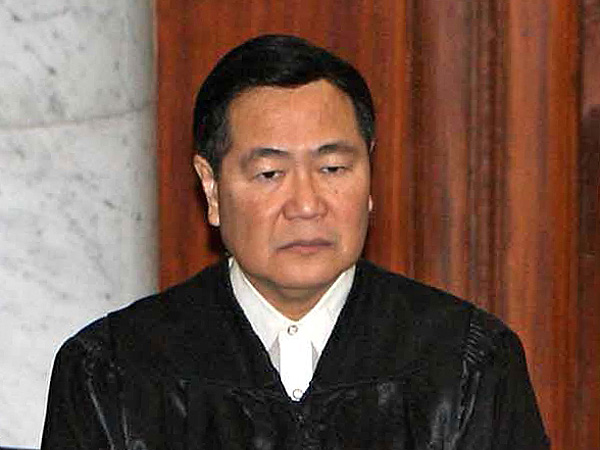SolGen grilled on ‘Tokhang’: Why has drug smuggling remained unbridled?
If ridding the country of narcotics is the centerpiece of President Rodrigo Duterte’s governance agenda, then why has drug smuggling remained unbridled?
Senior Associate Justice Antonio Carpio posed this question on Tuesday as he noted that the recent seizure of P6.4 billion worth of smuggled “shabu” (crystal meth) stood in stark contrast to the government’s brutal drug war, which mainly targeted street-level drug suspects.
In the third and final session of oral arguments on the two petitions opposing Mr. Duterte’s war on drugs, Carpio grilled Solicitor General Jose Calida on “Oplan Tokhang,” the main antidrug program of the Philippine National Police.
Citing the PNP Command Memorandum Circular No. 16-2016, Carpio said drug syndicates from mainland China and Chinese-Filipinos “dominate” the country’s illicit drug trade
Small-time peddlers
Article continues after this advertisementHowever, he noted that official government records showed that most of those arrested and killed in police operations were poor drug addicts and low-level drug pushers.
Article continues after this advertisement“How come the flagship project of the President is concentrated in going after the small-time drug peddlers? Why not the big-time lords?” Carpio asked Calida.
He also noted that in his speeches, Mr. Duterte seemed to encourage police officers to violate the law in carrying out the drug war.
Calida said the President’s order covered everyone in the narcotics trade and the PNP did not single out drug dependents in poor communities.
“However, the big-time Chinese drug lords are outside of our jurisdiction. They are in China,” Calida said.
Most common drug
Calida said shabu was the most common drug that “unfortunately proliferates” in impoverished communities and the poor also were the peddlers.
“So that was the first concern—to stop the peddling. And then we go after the big-time drug lords,” he said.
Pressed by Carpio on the number of drug suspects “neutralized” by the PNP, Calida said 419 Chinese nationals had been arrested on drug charges since July 2016.
Carpio expressed concern over the possibility that the President’s take-no-prisoner strategy would only lead to more killings.
“There is no government policy to kill,” Calida responded.
Death toll
He said official government records showed 3,806 people had been killed in legitimate antidrug operations, but human rights groups claimed the death toll in the war on drugs could reach nearly 14,000.
The PNP circular, Carpio said, reported 1.5 million drug dependents in 2015, but the number more than doubled since Mr. Duterte took office, going by the 4-million figure from the Philippine Drug Enforcement Agency.
“So it actually increased during the term of President Duterte, is that correct?” Carpio asked Calida.
Calida said the statistics were “not really accurate and was understated.”
Chief Justice Maria Lourdes Sereno asked Calida why the PNP conducted drug raids in the wee hours, which often led to the killing of drug suspects.
Sereno said it was “unusual” for the police to carry out “Tokhang” operations at nighttime if the PNP’s intention was to encourage drug suspects “to reform their ways.”
